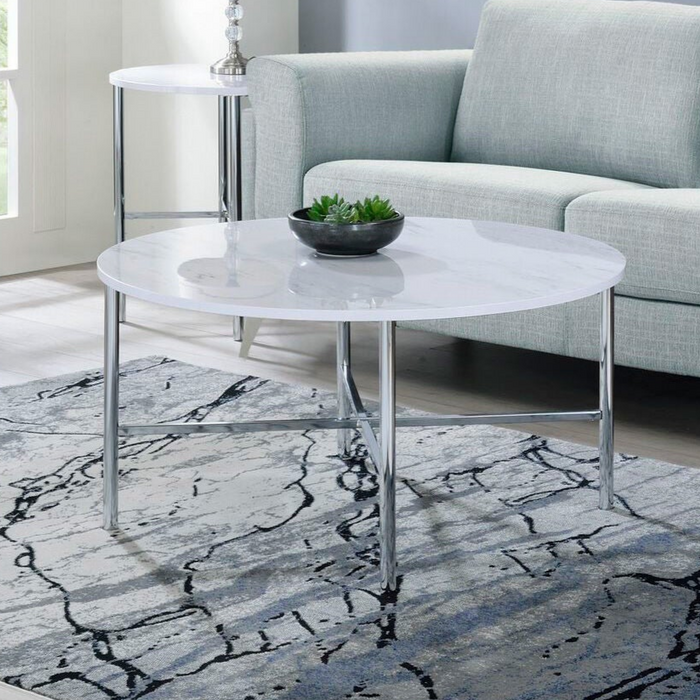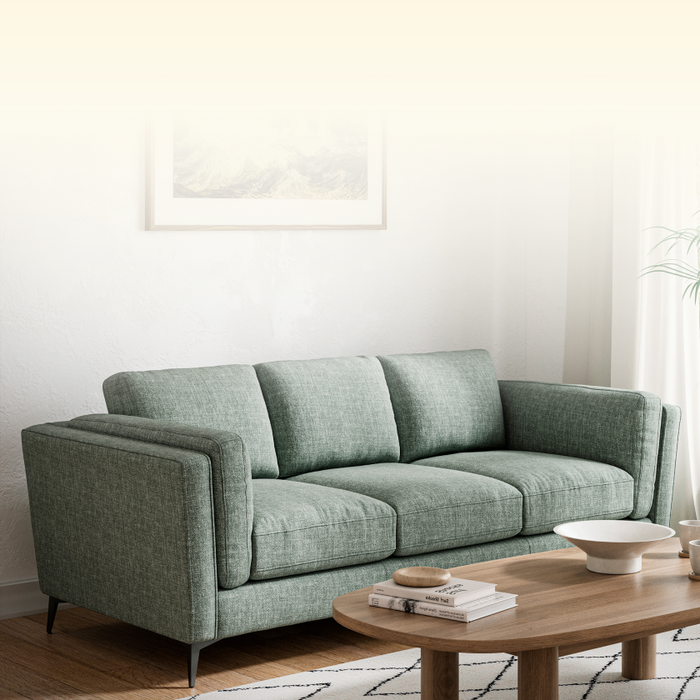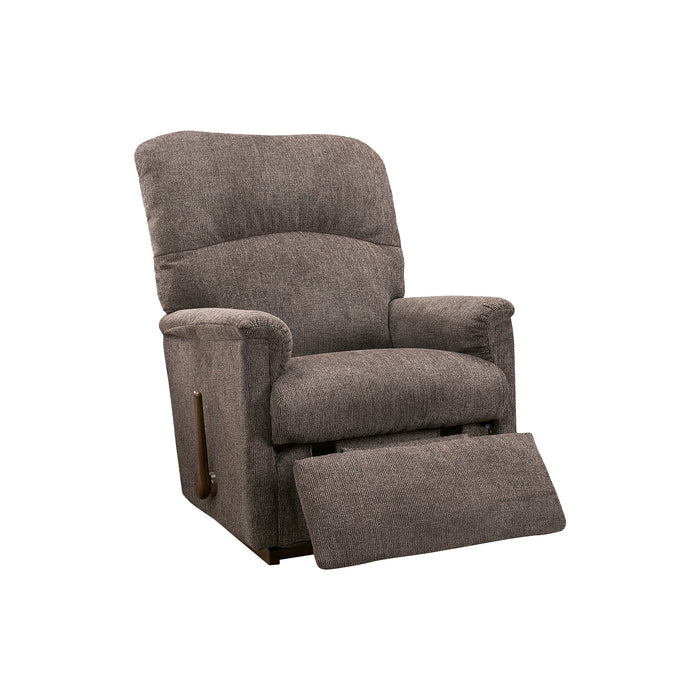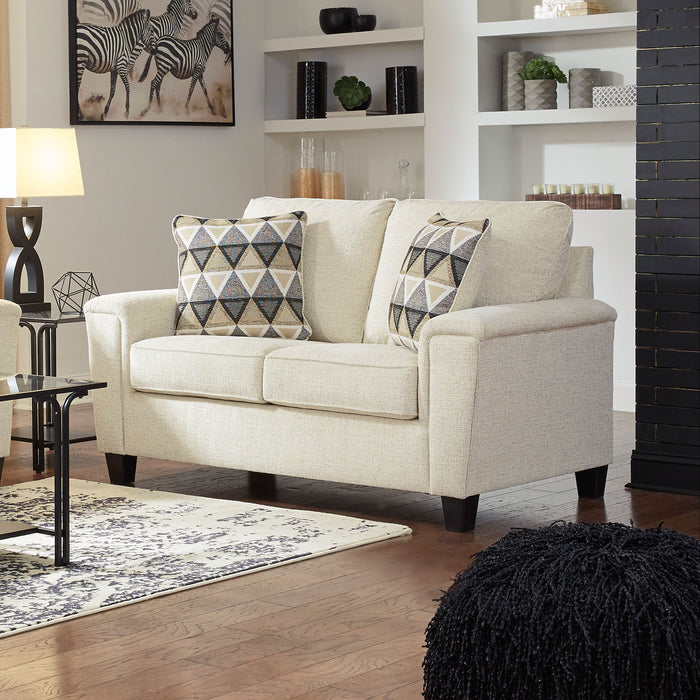When customers walk into Slumberland to buy a new mattress, one of their first questions is whether or not the bed will sleep hot. We especially get asked this question if they’re considering a memory foam mattress. Memory foam beds are often associated with hot, restless nights.
The truth is that sleeping hot was once a major issue with memory foam mattresses, but technology has advanced over the years.
When memory foam beds first came on the market, they were very dense (which meant airflow couldn’t move through the mattress layers). They didn’t feature any cooling technologies like gel-infused foam or phase change materials (PMCs). Older memory foam beds — and we’re taking mattresses from the mid-90s to early 2000s — were at a much higher risk of getting hot as you slept on them.
But over the years, mattress companies have gotten increasingly better at making foam that is comfortable, supportive, and breathable. And they’ve also combined breathable foam with other cooling technologies, like gel beads or layers or PCMs (both of which we discuss in more detail below). Still, inexpensive memory foam beds with cheap foam can still retain a lot of body heat, so it’s critical that you do your due diligence and make sure the memory foam bed you pick won’t make you hot at night.
So the short answer is, that while memory foam can retain heat, the higher quality mattress brands use technology to help memory foam beds sleep cool throughout the night.
If you want to experience how some memory foam mattresses can help you sleep cool at night, visit one of our Slumberland showrooms today. In our Sleep Solutions department, we label which mattresses feature extra cooling benefits, breaking them into two categories: mattresses that offer moderate cooling and ones that offer advanced cooling.
FYI: We also label other key aspects of each mattress, such as its feel, and the amount of pressure relief and back support it offers. For a full breakdown of how we made it easy to find the right bed for you, check out our article on how to shop for a mattress.
Otherwise, keep reading to learn about how memory foam works, why there are concerns about it being a heat trap, and how mattress companies address those concerns.
How Memory Foam Works
Memory foam works by adapting to your body. It does this by reacting to your weight, shape, and sometimes temperature. There is memory foam in shoes, car seats, and mattresses. Memory foam mattresses adapt to your body shape to relieve pressure points, which is why they are so comfortable and supportive.
But it’s these same cushioning and contouring characteristics that lead to heat retention. Because memory foam is cradling your body, your body is more “in” the mattress. (Compare this to an innerspring mattress where you feel more like you’re “on” the mattress.)
In short, what makes memory foam so comfortable and supportive is also what makes it a risk for overheating.
But it is possible for a company to make a memory foam mattress that’s comfortable, supportive, and cool — and that’s what we cover next.
How Memory Foam Mattresses Have Improved Over the Years
Memory foam mattresses used to weigh a lot more than they do now. That’s because they had to be very dense to provide you with comfort and support. These dense layers of memory foam were infamous for trapping heat.
But now memory foam mattresses can do more with less density and less foam. For example, the Tempur-Pedic LuxeAdapt, which has the most TEMPUR® material of any Tempur-Pedic bed, only weighs 150lbs in a king size. This is a decent weight for modern memory foam mattresses but is still quite a bit lighter than your memory foam mattress from the early 90s.
This makes the bed lighter and more breathable. But its support hasn’t reduced, which helps explain why Tempur-Pedic has placed 1st in JD Power’s rankings of retail mattress brands (two years in a row). Plus, each Tempur-Pedic mattress is backed by a 10-year mattress warranty which, among other things, protects your purchase in case your bed develops a sag or imprint that’s greater than three-quarters of an inch.
In addition to improving foam quality, mattress brands also use different types of technology to keep their memory foam mattresses cool.
How Companies Design Their Memory Foam Beds to Sleep Cool
In addition to making foam less dense and more breathable, mattress companies will also use different cooling technologies to keep heat away from the surface of your new bed.
- Gel memory foam — By using gel beads or swirls of gel, mattress companies break up the concentration of memory foam. This means that your body heat can’t easily get trapped in one area of the bed.
- Moisture-wicking covers — Moisture-wicking covers pull sweat out to the surface and help it dry faster. This keeps the surface of your bed dry, fresh, and cool.
- Phase changing materials (PCMs) — PCMs are thermoreactive. When they encounter heat, they draw it away from its source and, in return, these phase change materials react by cooling down.
By using one — or all — of these cooling methods, mattress companies create memory foam beds that are cool to sleep on.
The Best Memory Foam Mattresses for Hot Sleepers
When you’re looking for a cool memory foam mattress, you want to see three things.
- A cooling cover. The cover is where your body first makes contact with the bed. This is ground zero for heat to form. You want a cover that wicks away moisture and doesn’t let heat get trapped in the surface.
- Breathable materials. Look for a mattress that puts an emphasis on using breathable materials. This means advanced open-cell memory foam that is better for promoting airflow. Also look for organic cotton or 100% cotton instead of synthetic cotton or cotton-poly blends; natural latex instead of synthetic latex; and so on.
- Active cooling technologies. Look for cooling features like gel-infused foams, PCMs that react to your body temperature, or mattress covers that use graphite, copper, or TENCEL®, which is a natural, breathable, cooling fiber.
A mattress that uses all three of these strategies will give you the coolest sleep experience. And that’s why we think the best mattress for a cool night’s sleep is one from the Tempur-Pedic Breeze line.
All Tempur-Pedic mattresses are designed to be temperature neutral — all models use Tempur-Pedic’s cool-to-the-touch cover that helps dissipate heat at the surface.
But Tempur-Pedic also has the Breeze line, which actively feels cooler than other models.
- The ProBreeze can feel up to 3 degrees cooler. The ProBreeze uses a layer of phase change materials (PCMs) directly beneath the surface. These PCMs react to your body heat by cooling down, which makes the bed cooler.
- The LuxeBreeze can feel up to 8 degrees cooler. The LuxeBreeze uses the same technology as the ProBreeze but also adds a layer of ventilated foam at the base. This ventilated foam helps promote airflow, which keeps the entire mattress breathable.
For additional information, visit our post on the best cooling mattresses.
Do Memory Foam Mattress Toppers Sleep Hot?
Some customers will get a memory foam mattress topper instead of a brand-new mattress. Usually, when a customer wants a mattress topper[b] (also called mattress pad), it’s because they’re trying to make their mattress feel softer or they’re trying to cover up the sags and body impressions forming in their mattress.
Whether or not a memory foam mattress topper will sleep hot all comes down to quality. Cheaply-made memory foam toppers won’t be breathable, and won’t have any cooling properties.
If you’re buying a memory foam mattress online from sites like Amazon — or any other big, non-mattress-specific retailer — then you run the risk of getting a foam topper that may heat you up at night.
You want your memory foam mattress topper to be made with the same quality of foam that you’d want in your mattress. This means buying mattress toppers that are made and sold by name brands, such as Tempur-Pedic and Sealy mattress toppers. These toppers use the same kind of foam found in Tempur-Pedic and Sealy mattresses.
How to Make a Memory Foam Mattress Cooler
Above, we discussed how memory foam mattresses are designed to be cooler and more breathable than before. But what if you already have a memory foam bed — or any other type of mattress — that sleeps too warm for your comfort? Is there any way to make a memory foam mattress cooler?
The answer is yes.
You’re not just lying on a mattress, you’re also lying on a mattress protector and bed sheets. Plus, you’re likely using some combination of blankets, pillows, and a comforter. If you wear pajamas, those matter, too.
All of these fabrics contribute to how cool or hot you sleep at night. If you have a cool, breathable mattress but cover it in polyester sheets and are wearing flannel pajamas, then you’re going to sleep warmer than someone who is using organic cotton or special cooling sheets with phase-changing material woven into the fabric.
To help promote a cool sleeping environment, we recommend you use:
- Breathable mattress protectors
- Breathable sheets
- Cooling pillows
As a final note, for how to sleep cool at night — check the temperature in your room. Plenty of people feel like they’re sleeping hot because of their mattress when they actually have their room temperature set too high. Sleep experts agree that the ideal room temperature for a good night’s sleep is in the mid to high 60s.
Next Steps: Visiting a Slumberland Store
Sleeping on a hot mattress is no one’s idea of a good night. It’s uncomfortable and leads to bad sleep.
But while some memory foam beds — mostly lower quality models — can still sleep hot, the truth is most major brands have solved the sleeping hot problem.
By combining breathable high-density layers of cooling memory foam, with cooling covers and active cooling technology, you can get a cool, high-quality memory foam mattress that provides the pressure relief you need.
To feel just how cool some memory foam mattresses are, we recommend you visit a Slumberland showroom.






